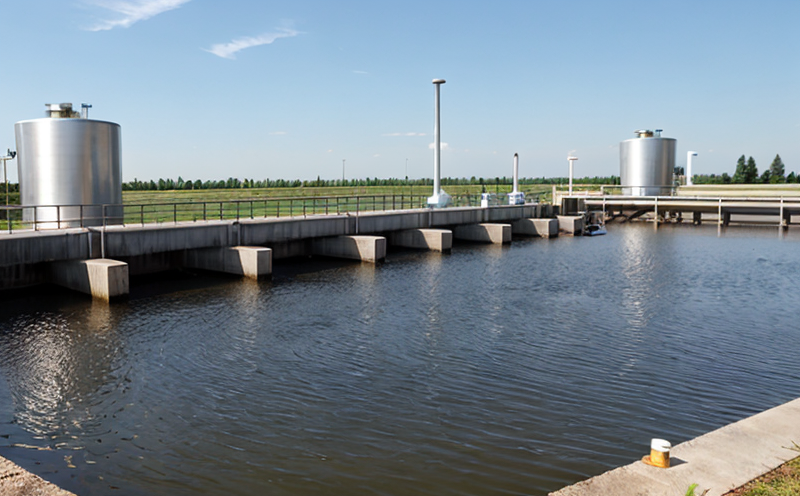EN ISO 14189 Microbial Detection in Mineral Waters
The EN ISO 14189 standard provides a framework for the microbiological quality assurance of mineral waters. This international standard ensures that water meets stringent microbial safety criteria to protect public health and ensure consumer confidence. Compliance with this standard is critical for companies producing, distributing, and selling mineral water products.
Mineral waters are sourced from underground springs rich in minerals and other dissolved substances. These natural sources can harbor various microorganisms, including bacteria, viruses, protozoa, and fungi. Ensuring these waters meet microbiological quality standards is paramount to maintaining product safety and compliance with regulatory requirements.
The testing process involves multiple steps, which are meticulously documented according to the standard's procedures. The first step in this process includes the collection of water samples from various sources within the production facility. It is essential that sample collection adheres strictly to ISO 14189 guidelines to ensure accurate and reliable results.
Once collected, the samples undergo a series of preliminary analyses aimed at identifying potential contaminants. This phase involves assessing parameters such as pH levels, temperature, and total dissolved solids (TDS). These factors influence microbial growth and survival within the water matrix. Following this assessment, the samples are subjected to more specific microbiological tests designed to detect pathogenic microorganisms.
The tests performed under EN ISO 14189 include colony counts for aerobic plate count bacteria, fecal coliforms, and E. coli. These indicators help determine if the water contains any harmful pathogens or excessive levels of non-pathogenic organisms that could pose risks to human health. Additionally, the presence of viruses like norovirus is detected by nucleic acid amplification techniques such as RT-qPCR.
For a more comprehensive evaluation, quantitative PCR (qPCR) methods are employed for assessing the total viable count and specific pathogen levels. These advanced molecular biology tools offer high sensitivity and specificity compared to traditional culturing methods. They also enable rapid identification of pathogens even in small sample volumes, making them ideal for quality control applications.
Following the completion of all microbiological tests, detailed reports are generated summarizing findings from each stage of analysis. Compliance with EN ISO 14189 guarantees that these reports meet stringent reporting requirements outlined by international standards bodies. This transparency allows stakeholders to make informed decisions regarding product safety and regulatory compliance.
By adhering strictly to the procedures set forth in EN ISO 14189, laboratories ensure they deliver accurate results consistently across different batches of mineral water products. The rigorous nature of this standard helps build trust among consumers who value safe drinking water options.
Benefits
Compliance with EN ISO 14189 offers numerous advantages for manufacturers, distributors, and consumers alike:
- Enhanced Consumer Confidence: Ensures that mineral waters meet rigorous safety standards, thereby instilling trust in the consumer.
- Regulatory Compliance: Helps businesses stay ahead of changing regulations by aligning with international best practices.
- Innovation Support: Encourages continuous improvement through regular quality assessments and updates based on scientific advancements.
- Cost Efficiency: Reduces long-term costs associated with recalls or lawsuits due to non-compliance issues.
Implementing EN ISO 14189 also fosters a culture of excellence within organizations, promoting best practices throughout the supply chain. This commitment translates into better resource management and reduced waste generation, contributing positively towards environmental sustainability goals.
Customer Impact and Satisfaction
The implementation of EN ISO 14189 has a direct impact on customer satisfaction by providing them with assurance about the safety and quality of their purchased mineral water products. Consumers are increasingly aware of the importance of microbial safety in beverages, especially those intended for consumption directly from the bottle or tap.
By choosing brands that adhere to EN ISO 14189 standards, customers can feel confident knowing they are consuming water free from harmful microorganisms. This peace of mind enhances brand loyalty and encourages repeat purchases. Moreover, companies demonstrating a strong commitment to such standards often attract new customers seeking reliable sources of hydration.
From an operational perspective, meeting these stringent requirements reduces the risk of contamination incidents, which can lead to product recalls or lawsuits. Such incidents not only damage reputations but also incur significant financial losses. By preventing these occurrences through proactive testing and monitoring processes aligned with EN ISO 14189, businesses protect their brand integrity while maintaining profitability.
Furthermore, adhering to this standard positions companies as leaders in the industry, setting benchmarks for others to follow. This leadership role can translate into increased market share and competitive advantage, ultimately benefiting both suppliers and end-users alike.
Environmental and Sustainability Contributions
- Reduced Water Usage: Efficient testing methods minimize the amount of water used during sampling and analysis processes. This conservation effort contributes positively to overall water resource management efforts globally.
- Minimized Waste Generation: By ensuring accurate detection of contaminants early in the production cycle, unnecessary reprocessing steps are avoided, leading to lower waste outputs throughout the supply chain.
- Eco-Friendly Packaging: Companies that comply with EN ISO 14189 often seek out sustainable packaging solutions. This shift towards more environmentally friendly materials reduces the environmental footprint associated with packaging waste disposal.
The pursuit of sustainability through rigorous testing practices aligns closely with broader corporate social responsibility (CSR) initiatives aimed at reducing environmental impact. Such efforts contribute to global sustainability goals by promoting responsible stewardship of natural resources and fostering a healthier planet for future generations.





